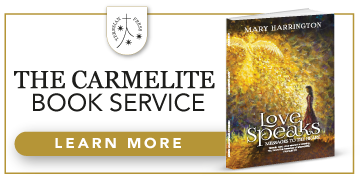Sorry, no records were found. Please adjust your search criteria and try again.
Sorry, unable to load the Maps API.
There’s an old maxim that everyone supports the principle of immigration, until the immigrants start arriving. Fear of the stranger in our midst is probably one of the oldest and most dubious of human emotions, with its origins lost in human prehistory.
In many ways it’s a strange suspicion, as every human person living today is a migrant of some kind – whether recent, or from the countless transglobal migrations of the past.
My own migrational history is just a generation away. My parents were part of the Irish diaspora to London of the 1950s, so I’ve grown up with an innate sense of being both separate and different. Today it matters much less than it did in the 1960s or the 70s when the Troubles were at their height and being Irish in England was far less than comfortable.
Like millions of others, my maternal Irish grandfather carried a lifelong obsession with migration – and even spent six years in New York hopelessly trying to carve out a better life away from a poverty-ridden Wicklow farmstead. He too lived his latter years in England, working in London and retiring to rural Somerset – though he never gave up his dream of joining his wealthier brother in Western Australia.
Migration is actually what all humans do, and have always done. Back in my childhood years the suspicion of the stranger was focussed on migrants from the West Indies – some 300,000 came to Britain between 1948 and 1964. But equally more than one million Brits (known as the Ten Pound Poms on account of the cheap cost of the processing fee) abandoned the UK for Australia under the Assisted Passage Migration Scheme, launched in 1945. The steady flow of migrants into the UK in the post war, ration book years was far from a burden and a threat, it offset an employment and economic crisis and helped balance the books and build a country that was in shreds after six years of bitter warfare, appalling human losses and the effects of German bombing.
Subsequent waves – from the Asian continent, from Poland and eastern Europe, have been met with the same battery of fears and suspicions, but there is little evidence that life or the UK economy has been upended by such arrivals. Romans, Vikings, Saxons and Normans may have impacted significantly on the subsistence landscape of ancient Britain, but industrialised economies invariable consume outsiders, with little or no impact on the national monolith. However much I might cherish my reclaimed Irish citizenship and EU passport, my children are Welsh, my wife’s roots are Scottish, and for my descendants all my preoccupation with lineal culture and Irish identity will be just a vague memory within a couple of generations. As anyone who has researched their family history will know, national identity is not a fixed thing but an ever-changing journey, of which we are just a moment on the road.
National points of reference and identity are just transitory and meaningless things, but sometimes the stranger brings with them far great affinities that do seem to threaten the ambient landscape. Much of the ambivalence to the current wave of people fleeing wars and terrible persecutions in places such as Syria, some African states and various middle eastern countries is centred on the muslim faith they bring with them, which is seen as a far greater threat to that very abstract thing called the ‘British way of Live’ than any national loyalties. But it was no more than a century or so ago that so-called British citizens were expressing exactly the same kind of irrational terror at the rapid expansion of Catholicism across the UK.
In his message for this Sunday’s 109th World Day of Migrants and Refugees, Pope Francis makes the point that: “the migratory flows of our times are the expression of a complex and varied phenomenon that, to be properly understood, requires a careful analysis of every aspect of its different stages, from departure to arrival, including the possibility of return.”
It’s worth pointing out that even our present pontiff is a prominent migrant – his father Mario Bergoglio fled from Italy to Argentina in 1929 to escape the fascist regime of Benito Mussolini. Francis himself lived variously in Spain, Ireland and Germany before his papacy brought him back to his late father’s homeland.
Perhaps understandably he has this year leant on the story of the flight of the Holy Family to Egypt (Mt 2:13) to illustrate the pressures that confront so many migrants today.
“The flight of the Holy Family into Egypt was not the result of a free decision, nor were many of the migrations that marked the history of the people of Israel,” says Francis.
“The decision to migrate should always be free, yet in many cases, even in our day, it is not.”
Working out the reasons why any person decides to desert their homeland isn’t easy, but you can assume it’s because life there isn’t pleasant. Unfortunately legislators and media commentators have a tendency to distil these many impulses into a bare, clumsy distinction between ‘refugee’ and ‘economic migrant’. Refugee is perfectly straightforward – no-one should be living in a war or natural catastrophe zone and few ought to dispute our obligation to help and support any suffering fellow human being.
It’s really the notion of ‘economic migrant’ that causes the moral objections, warps sympathy and tends to be weaponised by those seeking to exclude strangers. The great problem with the concept of economic migration is that, whilst numerous people on the move are undoubtedly seeking to improve their living circumstances, to resist this human flow is to endorse the idea that some people have a right to a better standard of living than others. Inevitably this creates a distorted kind of meritocracy, where it is taken for granted that some will have unreasonable wealth, whilst others ought to be held down in their impossible poverty or are somehow in that position for metaphysical reasons. Sadly, I sense an increasingly vocal commitment to this terribly warped definition of society being expressed by those who claim to govern this country.
Of course this question would never arise if people didn’t feel obliged to flee their native countries in the first place. Put simply, without dictators, with good economic management and a fair distribution of wealth that protected the most vulnerable, few people would ever think of upping sticks and moving anywhere else. Thus the whole dilemma of migration is the result of a failure of people to create equitable living spaces.
As Pope Francis says: ”joint efforts are needed by individual countries and the international community to ensure that all enjoy the right not to be forced to emigrate, in other words, the chance to live in peace and with dignity in one’s own country.”
This particular ‘right’ is a long way from being defined or codified, but nothing short of a global concept of the common good will suffice if the population of this world is ever to live in peace. Given the increasingly perilous state of the planet and its economies and natural resources, it’s no longer tenable to hold to the view that some are entitled to have everything, whilst there’s a single person who has nothing. For so long as such imbalances exist, people will always uproot themselves in search of security and the life they see that others have.
That is simply Christ knocking at our door, and who are we to ignore Him?
Joseph Kelly is a Catholic publisher and theologian
































